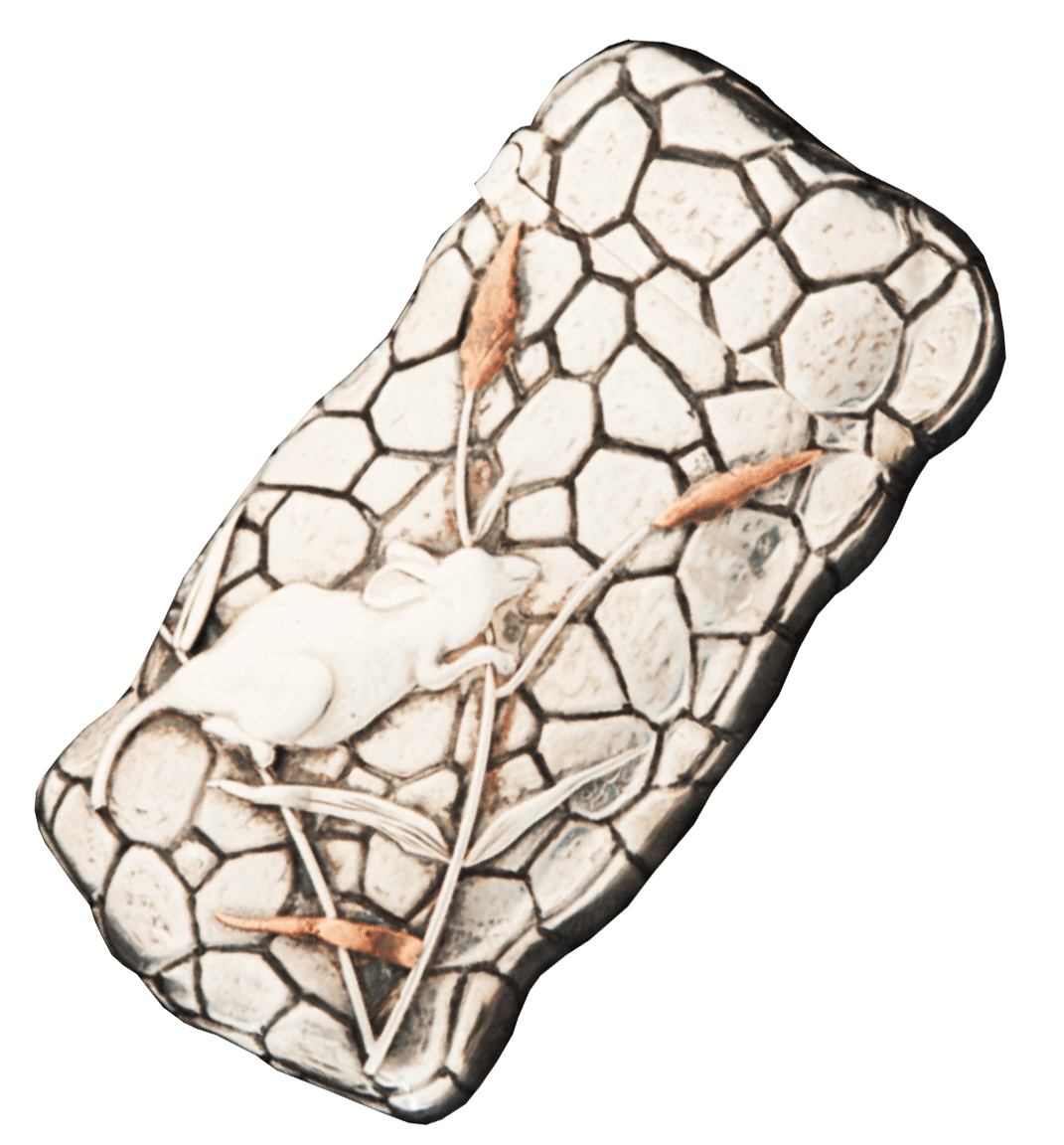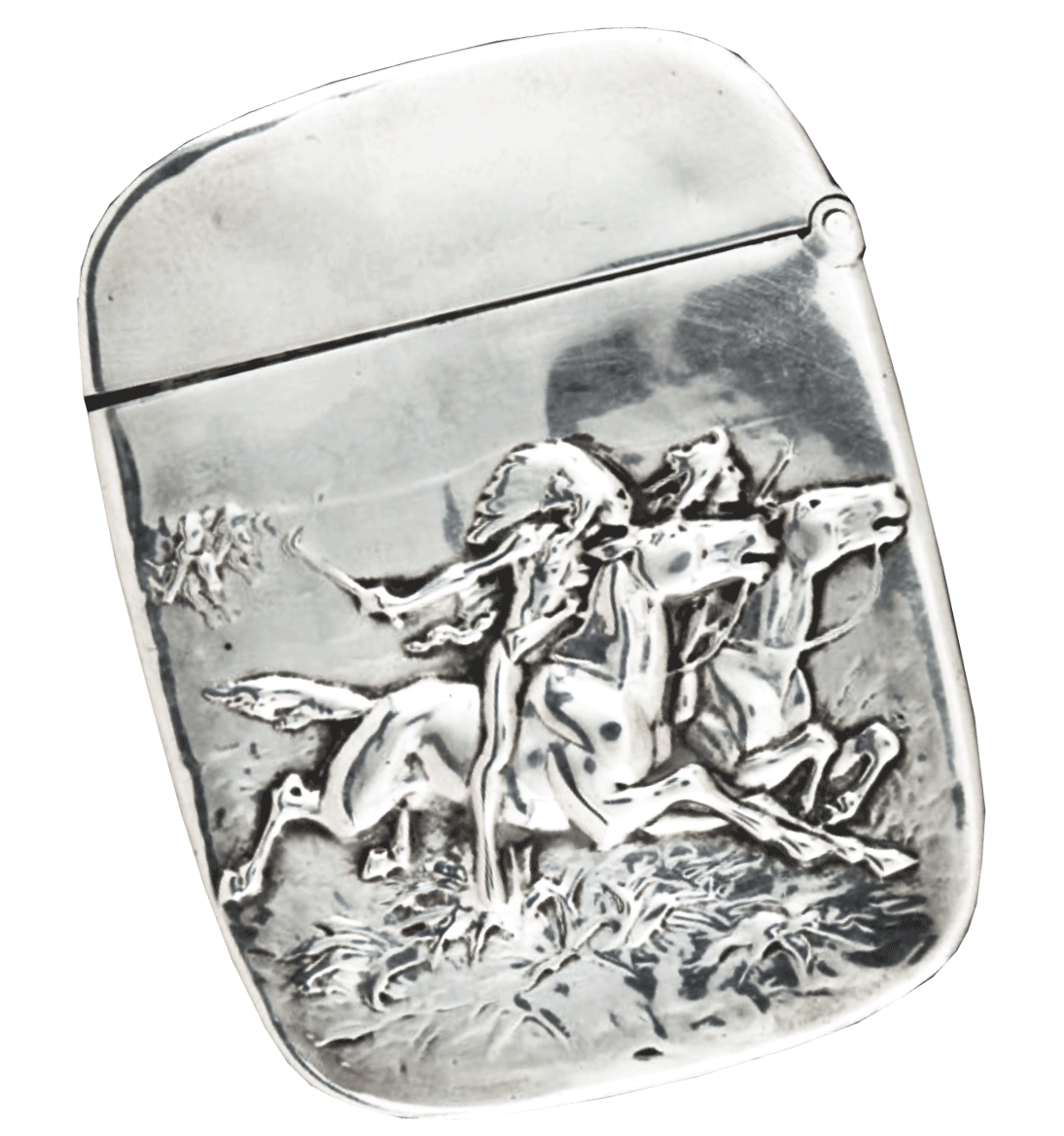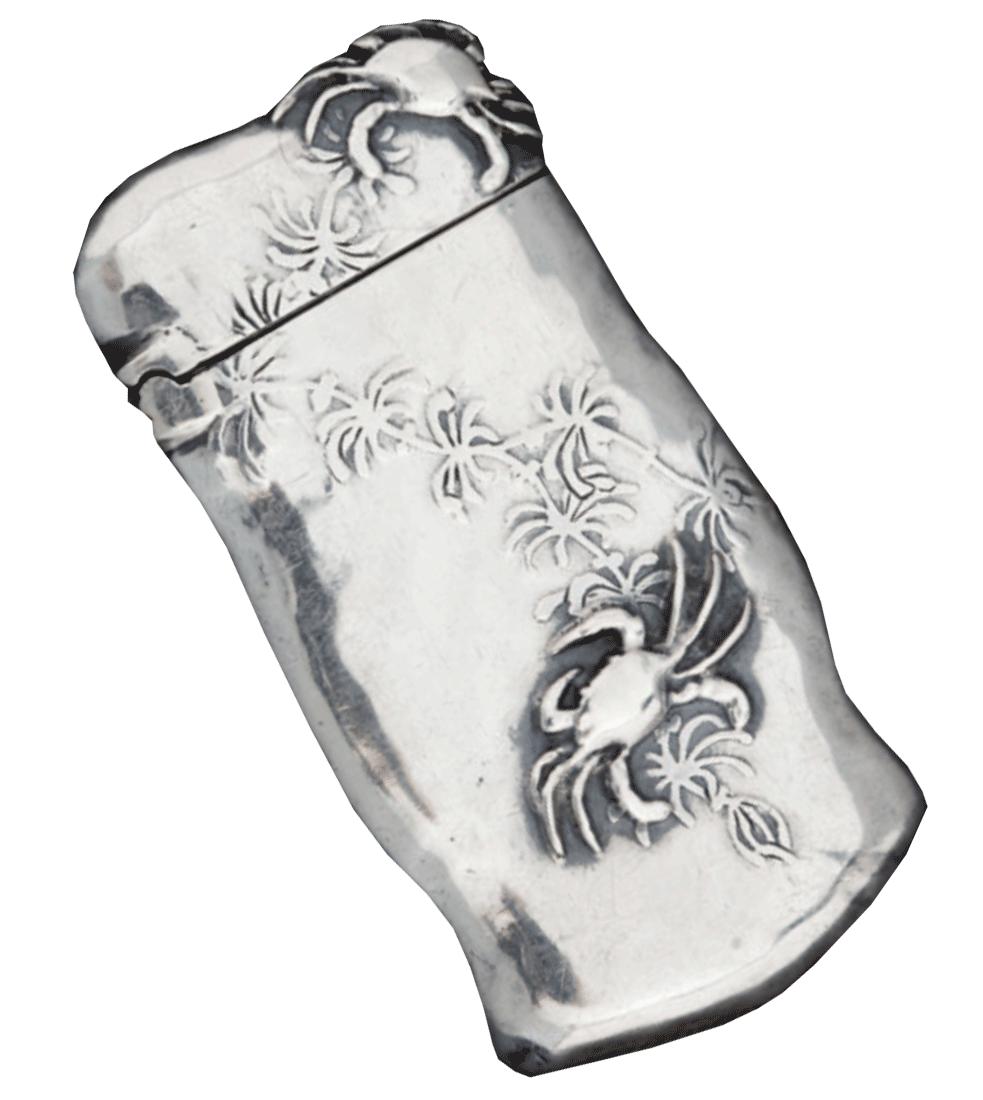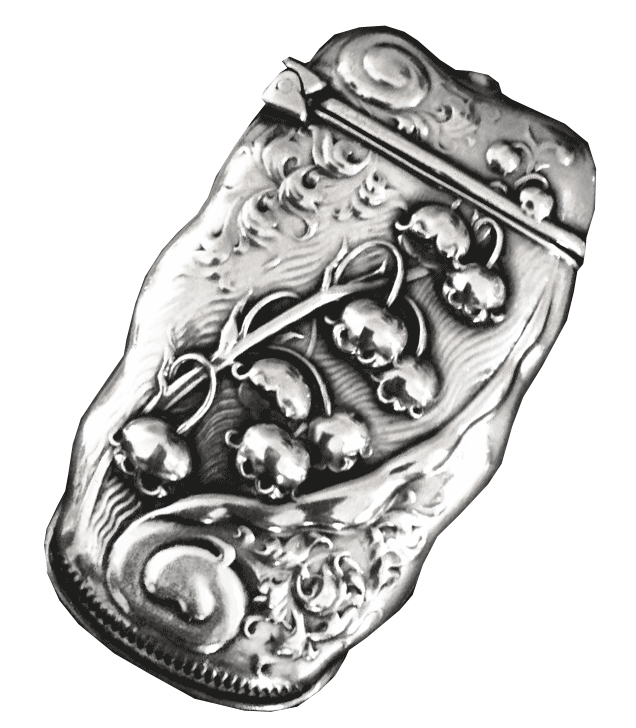The Definitive E-Book on The Whiting Manufacturing Company of Sterling Silver Flatware and Hollowware Items
- GREG ARBUTINE
- Jan 15
- 13 min read
Updated: Feb 6
In this E-Book and web interactive guide, we are going to explore the vast greatness and history of The Whiting Manufacturing Company which produced silverware and hollowware from the mid 19th century through the early 20th century. We will be showcasing its designs in sterling silver flatware, silver hollowware, yachting trophy production and jewelry, as well as delve into its importance to its key contributions to the aesthetic and arts and crafts movement of the late 19th century.
To begin with, The Whiting Manufacturing Company of Sterling Silver Flatware and Hollowware items might be perhaps one of the most under rated and unheralded silver manufacturer that ever existed. There are no printed books written about this company and little is mentioned on Wikipedia or other resources on the internet. In researching Whiting, we have discovered an entire world of outstanding silver production and design credited to The Whiting Manufacturing Company. The company at one time in our opinion was on par with both Tiffany & Co. and Gorham, yet today is hardly known or recognized for its once great stature in the silverware manufacturing world.
Part One: Whiting Silver Flatware
Full Silverware Sets:
Whiting produced full sets of flatware that included place settings and serving pieces.
They created several dozen patterns with full lines, but their most notable patterns were: Empire, Heraldic, Hyperion, Lily, Louis XV, Violet and Lily of the Valley.
Each of these more popular patterns had many extensions in their sets to accommodate the most extravagant of dining tables.


The Following is a catalog available on Ebay and Amazon that shows the full extent of the flatware lines that could be possible to purchase. Some of these patterns had over a hundred different types of pieces.
Above on the left is: Louis XV sterling pattern and on the right is the Empire sterling pattern
Historical Catalog Reprint is
Available on Ebay:
Specialty Flatware Serving Pieces:
Whiting produced some of the most extravagant and fanciful serving pieces ever produced on the planet.
In this section, we are going to showcase four of our favorites:
Bonbonniere Serving Spoons - These spoons were used by butlers of very expensive households to serve candy and bon bons to the guest of the house mostly at parties. They spoon lies down over the wrist of the butler where he holds to spoon down for the guest to remove an article from the serving piece basket portion.
Asparagus Serving Forks - These forks were also made for the very elite. How often does one even server asparagus, let alone have a huge monster sized fork that is made specifically just to serve it. These forks are very beautifully crafted and almost qualify as a class of art objects.

Whiting Sterling Silver Asparagus Serving Fork in Lily Fish Serving Forks and Knives - These serving pieces were also produced for the very rich to impress their guests with a specialty serving item that was very seldom ever used. A lot of these pieces are very intricately decorated especially on the blades where they often display depictions of fish.

4. Large Soup or Punch Ladles - Another large specialty serving piece used by the wealthy included the soup or punch ladle. These often measured out to be 13" long and were considerably heavy in weight in silver. They were very ostentatious and made for a spectacular presentation at a large gathering or party.

Design Styles and Trends that Whiting strove to emulate and achieve:
Whiting pursued several distinct design styles in its manufactuing of flatware and holloware pieces.
Here are the primary 8 styles that they incorporated into their production lines:
Japanese Naturalistic Style: Designers at Whiting took inspiration from Japan and created their own renditions of Japonesque style items crafted in silver.

Whiting Japanese Sterling Silver Pattern Aesthetic Movement: Whiting created some patterns that were absolutey beautiful and organic in nature to fall in line with the Aesthetic Arts Movement of the late 19th century.

Whiting Aesthetic Movement Sterling "Calla Lily" Victorian Style: Whiting loved to created patterns that reflected the Victorian Style of the 19th Century.

Empire by Whiting Sterling Silver Colonial Style:
It had only been a few decades since the colonial style was all the rage in the America's and in England and Whiting was determined to create patterns that would appeal to that Puritan customer.

Jenny Lind by Whiting Sterling Silver Traditional English Style:
The English Style in The United States has been and always will be a popular design to use. Whiting made many patterns reflective of this demand.
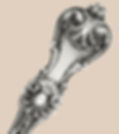
King Edward by Whiting Sterling Silver French Renaissance Style:
The French Style is forever in fashion. Whiting made many patterns in the French way.

Pompadour by Whiting Sterling Silver East India and Islamic Style:
Whiting made a few patterns that were reflective of the Islamic and East India Style.

Persian by Whiting Sterling Silver Arts and Crafts Movement:
The Arts and Crafts Movement of the 19th century called for the return of hand made items instead of everything being machine and factory made. Whiting answered the call and delivered a few patterns reflective of this.

Gem Leaf - Hand Etched Sterling Silver Flatware by Whiting
The Ultimate Flatware Sets and Serving Pieces - Mixed Metal:
In the guilded age of industrialists and ultra wealthy, there was an eventual evolution in flatware to accomdate the very very wealthy patron who wanted to show that they were king. Whiting and other silverware manufacturers decided to mix sterling silver with other metals which today is known as mixed metal. Because so little of these items were ever produced, in today's market they are amongst the most rare and valuable to be found.

Whiting Sterling Silver Flatware Pattern Guide:
Whiting manufactured and produced ovre 65 different sterling silver flatware pattern designs. For a full list of these patterns, please click on the link below:
Part Two: Whiting Silver Hollowware
Tea and Coffee Services and Water Pitchers:
Whiting produced a few Tea and Coffee services as well as many Water Pitchers. Most were produced for the masses and are somewhat ordinary. However, there were a few that were made to appeal to the very rich and also to the connoisseur of high end decor.
East India and Islamic Style:
This Coffee Pot example is shows a very highly decorated islamic theme. The amount of hours and labor this piece took to create was probably staggering, likely 25hours of chasing performed on this piece.

Whiting Sterling Silver Tall Coffee Pot in Islamic Style Highly Decorated and Ornate Repousse Style:
Whiting's team of artisans and silversmiths were some of the most capable in the industry and they were really good at utilizing all the techniques of creating beautiful silver art works. The following Tea and Coffee Set highlights the attention to detail in creating this gorgeous Repousse and Chased Style Service:

Repousse Coffee and Tea Service made by Whiting Fancy Scrollwork and Chasing in a Rococo Style:
Scrollwork is a very popular decoration to be included on sterling silver hollowware. This water pitcher has a lot of scroll work and is typical for a more French themed pattern like Louis XV by Whiting or also similar to Gorham's Strasbourg pattern.

Scrollwork pattern water pitcher made by Whiting
Bowls, Candlesticks, Candy Dishes and other more common type pieces:
Whiting produced bowls, candlesticks, candelabras, candy dishes, fruit bowls, nut dishes and other types of more commonly used pieces. However, the strong majority of these types of items were mass produced and there are few that exhibit the qualities of something over the top and really special. There are some exceptions like this beautiful candy dish that has a very pretty floral and swirled design.

Match Safes:
Whiting was a prolific producer of sterling silver match safes also known as vesta cases. These were extremely popular in the late 19th century and early 20th century amongst both women and men. Giving a person a "light" for their cigarette was a common way to break the ice socialy and how better to do so than to display a beautiful silver work of art in the process. In today's modern age of cigar rooms and smoing clubs, there has been a renaissance with these pieces and most are very highly collectible some worth hundreds or even thousands of dollars.
Here are some of our favorite examples of sterling silver match cases made by Whiting:

Jewelry:
Whiting produced only a limited quantity of jewelry and little to none is extant in today's market. Here is an example of a gorgeous bangle bracelet with mixed metal of copper and Niello inlay work.

Whiting Silver Plated Items
According to this print ad from the early 1900's, Whiting M'F'G Co. advertised that any item bearing their trademark is never going to be silver plated. From that advertised slogan, we conclude that 100% of all items manufactured by whiting were either sterling silver or gold or other precious metals.

Mixed Metal Hollowware:
In response to the production of mixed metals pieces made by rival companies like Tiffany and Gorham, Whiting also rolled out a line of sterling silver that had a base metal of 92.5% pure sterling silver with embellishments of brass, copper or gold applied on to the pieces. This combination created a super wow factor that appealed to the very richest of customers. If you had a mixed metal piece on display in your dining setting, then you were likely one of the super elite, and that still holds true today, as the prices of some these items can be worth their weight in gold. To find out more on values see our other article:


Yachting Trophies and Custom Made Items of sterling silver:
Whiting was a huge producer of generic and custom made yachting trophies.
Generic Mass Produced Trophies Made by Whiting:
Whiting had several standard models of trophies that they had readily available for sale. These were just generic with a standardized base model that was mass produced. Each could be easily custom engraved by Whiting or by a local jeweler store engraver for a special occasion, show or race. Below is a print ad that illustrates these basic models. Even these basic standardized models were still very opulent and beautiful in their own right.

Custom Made Trophies Made by Whiting:
Whiting was a huge producer of custom made yachting trophies. These trophies were a 100% a unique design, custom made for the specific race or event. The promotional company or marketing department for a race or event would contact Whiting and give them few ideas or themes for what they wanted their trophy to exhibit. The designers and artisans at Whiting would then work their production magic and create these absolutely gorgeous sterling masterpieces. Below are several advertisements from various print magazines from the early 20th century where Whiting showed past trophies that they produced in hopes to garner more custom order business.
"Goelet Cup" For Schooner, won by Montauk
The seahorse and nautical theme on this trophy wine ewer is absolutely an amazing masterpiece. This is the top of top when it comes to craftsmanship and design in the silver industry.

"Goelet Cup" For Schooner, won by Montauk "Larchmont Cup" For Schooners, 1893 - Won by "LASA."
The decoration on this trophy centerpiece bowl is truly magnificent! It has an Native American Indian theme with a huge figural of a chief and elements of a canoe.

"Larchmont Cup" For Schooners, 1893 - Won by "LASA." by Whiting Silver Massachusetts Naval Brigade Trophy
This is another Whiting masterwork that really showcases the level of their design skills and craftsmanship with was 100% on par with Tiffany and Gorham at that time period. The Navel vessel with the anchors and huge finial eagle on top the trophy are absolutely breathtaking!

Massachusetts Naval Brigade Trophy made by Whiting Silver Seawanhaka Corinthian Yacht Club Trophy Won by "Puritan" Designed by Whiting Mfg. Co.
This is another Whiting masterwork that pays great tribute to the Native American community with its maiden and various tribal elements.

Seawanhaka Corinthian Yacht Club Trophy Won by "Puritan" Designed by Whiting Mfg. Co. St. Bernard Club of America
This is a beautiful example of a silver plaque custom made by Whiting for The St. Bernard Club of America. The customer would tell Whiting what they wanted verbally or even give them a rough sketch and then the artists and designers at Whiting would work their magic and create a stunning sterling silver artwork.

Silver plaque custom made by Whiting for The St. Bernard Club of America New York Yacht Club Schooner Prize Won by the "Fortuna"
This yacht club tropy cup made by Whting for The New York Yacht Club is absolutely amazing with a sea maiden and waves. The horn like shape is very unusual and unique in silver designs.

Rockaway Hunt Gold Cup
This yacht club trophy was custom produced by Whiting MFG Co. as the the horse racing grand prize for the "Rockaway Hunt Gold Cup." It is quite exquisite with its ornate detail and hand chasing.

Seawanhaka Corinthian Yacht Club Cup won by "Cinderella"
This yacht club trophy has avery nautical theme with a large amount of sea shells and other decorative nautical themed embellishments.
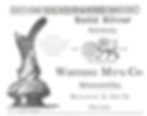
"Goelet Cup" for Schooner, Won by "Sachem."
This yacht club trophy has a oblong oval shape and boasts 2 large figures of a Native American Male holding up what appears to be a mermaid. The intricate design and detail work make this a true masterpiece of sterling silver creation.

Eastern Yacht Club Won by "Gitana"
This Bar Harbor, Maine Custom Made Sterling Silver Trophy made by Whiting is one that displays a lot of applied inscription work.

Part Three: Whiting History and Trademarks
Whiting's Trademark:
The Whiting Manufacturing Company has a very beautiful trademark with an austere Lion and Griffin combination with a huge "W" for Whiting. It is easily recognizable when looking at pieces of sterling silver made by Whiting.

Whiting's Trademarks/Hallmarks/Backstamps:
The Whiting Trademark is almost always displayed proudly on every piece of flatware and holloware that it ever produced. These "backstamps" are often referred to as "Hallmarks" to follow the British usage of the stamping and imprinting terminology. Here are several examples of Whiting Hallmarks:




Whiting's Date Marks:
From the year 1905 to 1924 Whiting stamped their larger holloware items with date mark symbols to show their age of origination. This was a trend in the silver industry with both Gorham and Tiffany also using an elaborate symbols coding system to mark their pieces. One wonders why they didn't just mark the actual year date on the pieces. I suppose the symbology gave the pieces a bit more intrigue, as well as not tipping off customers in a retail setting that the merchant had a piece sitting on a shelf that was made several years earlier. Customers always want the latest and greatest, so by doing the symbols, the client would have no clue if he merchant was sitting on a piece of dead inventory that they had stocked years ago.

Prior to the date mark system one could ascertain the year of origin from the pattern number system that Whiting had in place.
This system was almost identical to the same one that Tiffany & Co. had implementd.
Date Stamp Pattern Number
1880 unknown -
1881 unknown -
1882 unknown -
1883 1000-1341 341
1884 1342-1623 281
1885 1624-1951 327
1886 1953-2317 364
1887 2318-2648 330
1888 2649-2940 291
1889 2941-3231 290
1890 3232-3465 233
1891 3466-3827 361
1892 3828-4050 222
1893 4051-4332 281
1894 4333-4740 407
Whiting Manufacturing Company History:
Preface: I chose to put the company history in the last section, because I wanted the reader to experience all of the silver product offerings of Whiting first to be able to get that appreciation of their incredible product so that that later on in the Ebook they would have more interest in learning about the background of the manufacturer.
History:
WHITING MANUFACTURING COMPANY
Providence, Rhode Island
Originated by Albert T. Tiftt and William Dean Whiting in 1840 as Tifft & Whiting, to manufacture jewelry. They later added ladies' silver combs and small hol-loware. For a brief time prior to 1858, the firm was Whiting, Fessenden & Cowan (W.B. Fessenden (q.v.) located in North Attleboro, Massachusetts. It became Whiting Mfg. Co. in 1866. After the factory in North Attleboro was destroyed by fire, one unconfirmed account states that they moved to Newark, New Jersey. In 1910 the company was moved to Bridgeport, Connecticut, where a large modern plant was erected and a complete line of silverwares was produced. The company was purchased by the Gorham Company in 1926 and moved to Providence, Rhode Island, where the original trademark continued to be used.
Frank M. Whiting was the son of William Dean Whiting who was the original founder of Whiting Manufacturing Company. Frank's company produced a prolific amount flatware and some holloware from year 1885 up to year 1954.
Source of the above historical account:
The Encyclopedia of American Silver Manufacturers by Dorothy Rainwater & Martin and Colette Fuller
Additional Whiting Manufacturing Reference Resource Materials:
If you are still hungry for more information on The Whiting Manufacturing Company here are a few more suggestions we have for you to explore:
Jewelers Circular Keystone Sterling Flatware Pattern Index - this printed book contains an entire section that fully illustrates all of Whiting's sterling flatware patterns.
Whiting Manufacturing Company - A History of the Firm and its Japanese Inspired Silver (1860-1890) by Abigail Barnes Nova This is a 149 page Master's Thesis created by an art student from the MA Program in the History of the Decorative Arts and Design Cooper‐Hewitt, National Design Museum, Smithsonian Institution; and Parsons The New School for Design Year 2010 . This is a really heady read and supplies much more detail than what I wanted to convey to my readers in my Ebook. However, it really is a well researched book and has many cool photos of Whiting Silver and Historical pics and is well worth taking a look at it. On Google search: The Whiting Manufacturing Company: and then click this result below and then a .PDF of the book will download to you:

What is Whiting Silver Worth?
Do you want ideas on the value of Whiting Sterling Silver Flatware and Holloware?
Please see our value guide on Whiting:
Conclusion:
We started the E-Book by stating that we thought that at one time, that the Whiting Manufacturing Company was on par with both Gorham and Tiffany in its arsenal of design and craftsmanship. Hopefully after reading through and seeing the incredible silver masterpieces and wonders that Whiting created, that you will be swayed into thinking the same. No matter your opinion on the comparison, it is safe to say that The Whiting Manufacturing Company was one of the most incredible designers and manufacturers of sterling silver flatware and holloware that ever existed.
We Buy!
We want to purchase all Whiting sterling flatware and hollowware, especially any pieces that have elaborate decorative work or have unusual themes..
If you have items that you'd like to sell,
or even just want to get an idea on valuation
please click the email us button for a quote.
Please send us photos, measurements and item descriptions.
Thanks,
Greg Arbutine
Silver Museum Owner



The Silver Museum buys all sterling flatware and hollowware regardless if it is rare or not. We want it all!
Please sell your Sterling Silver Pieces to The Silver Museum!
Please get our offer no matter what else you eventually do. We are looking for great pieces for our Museum.








